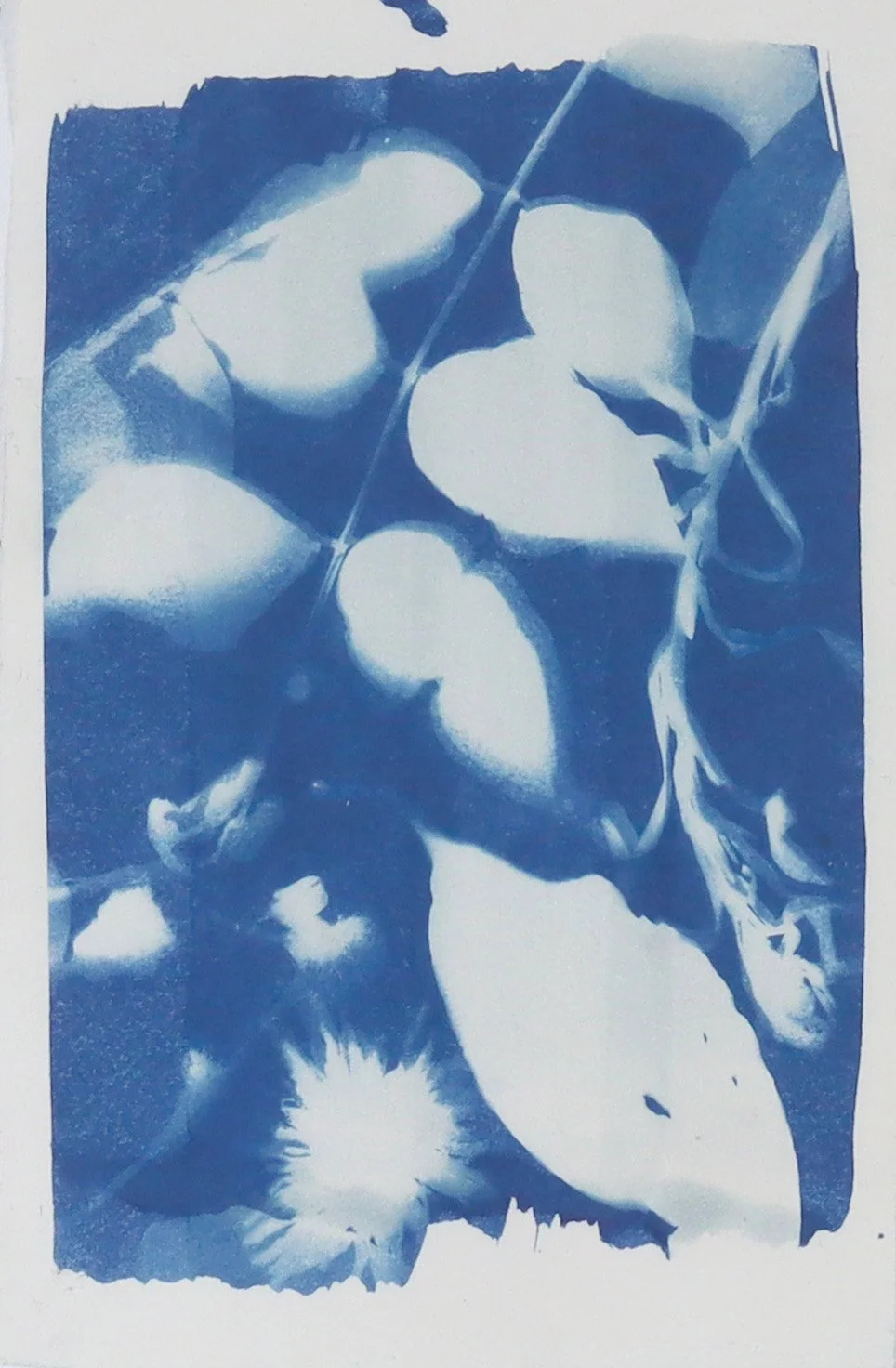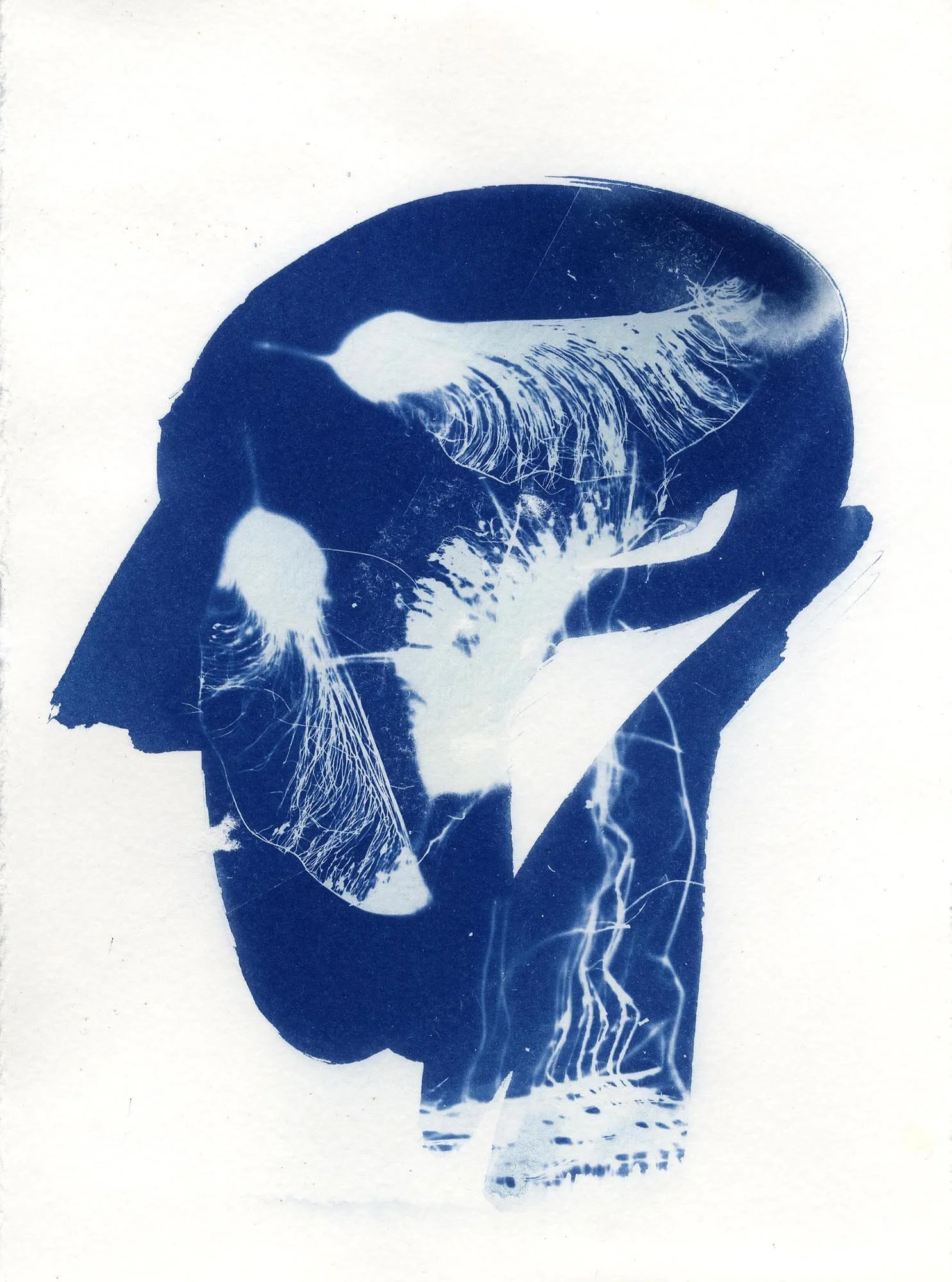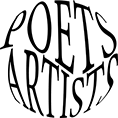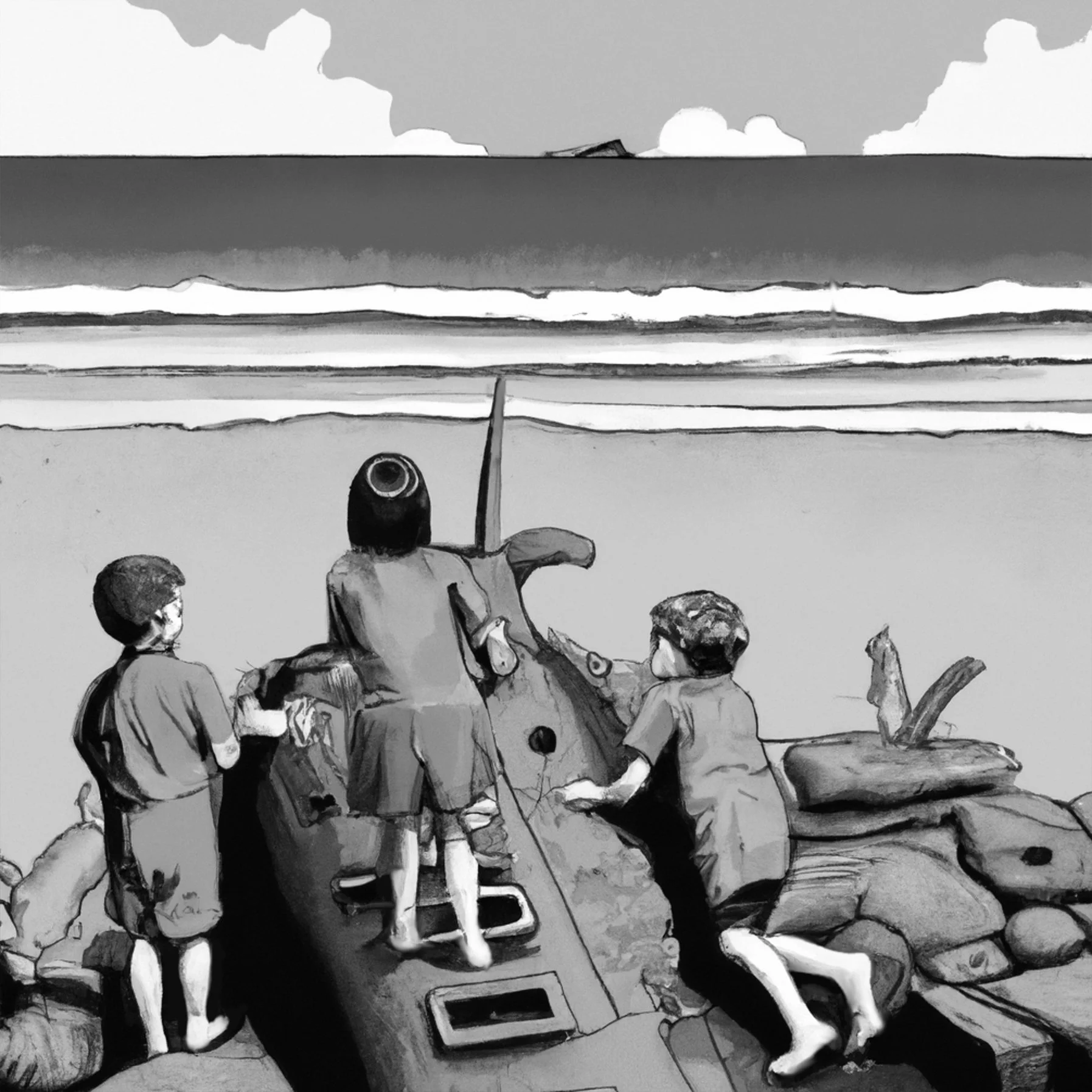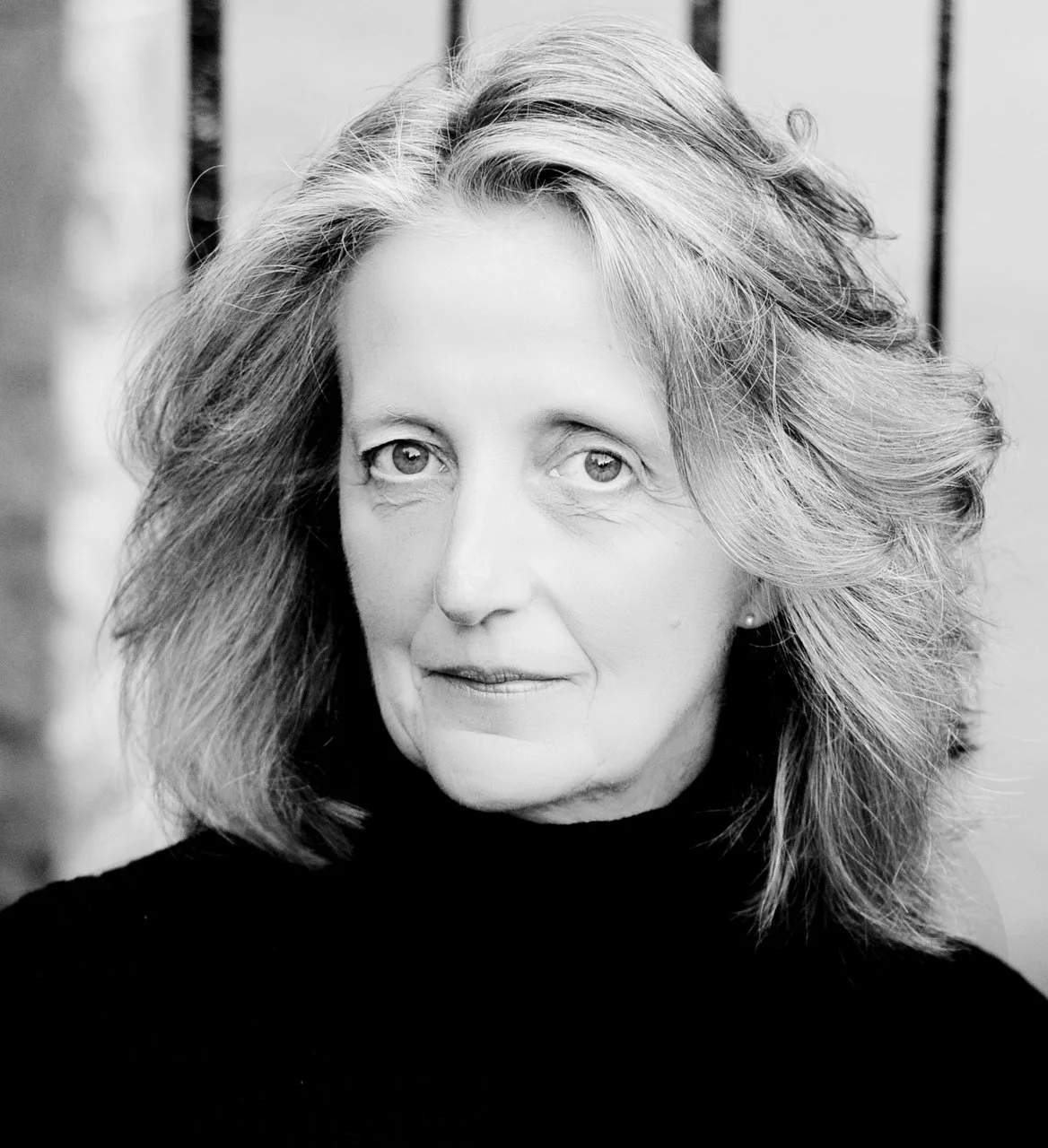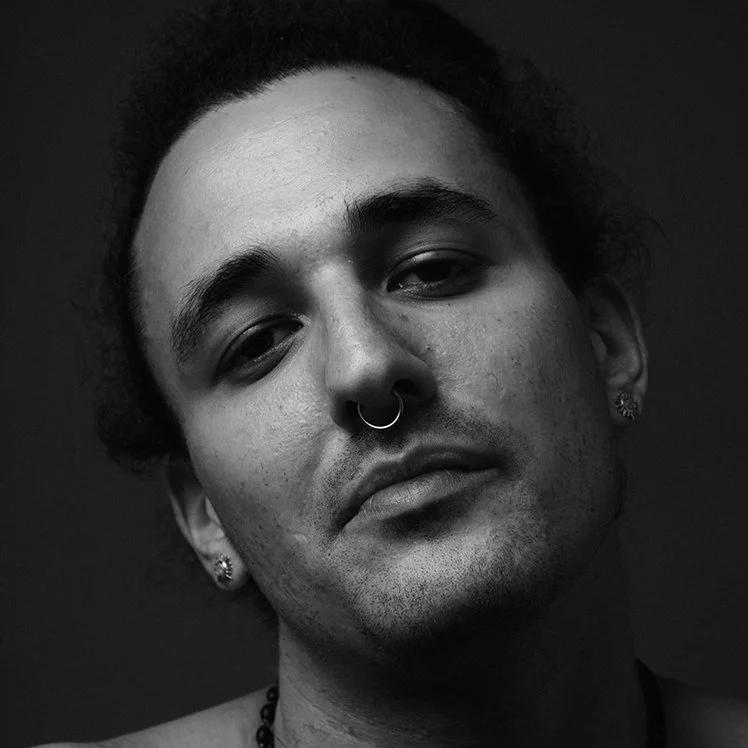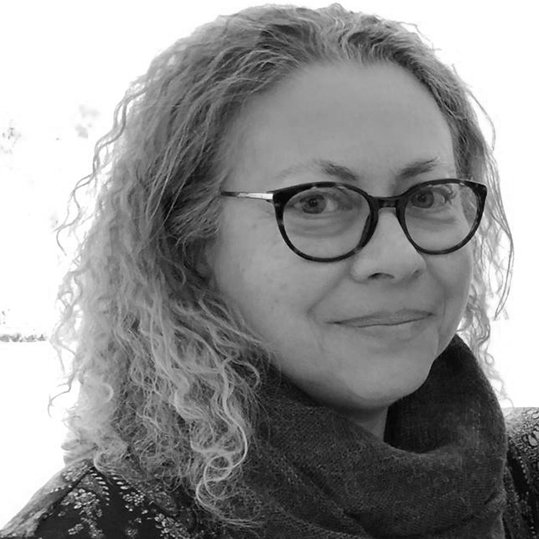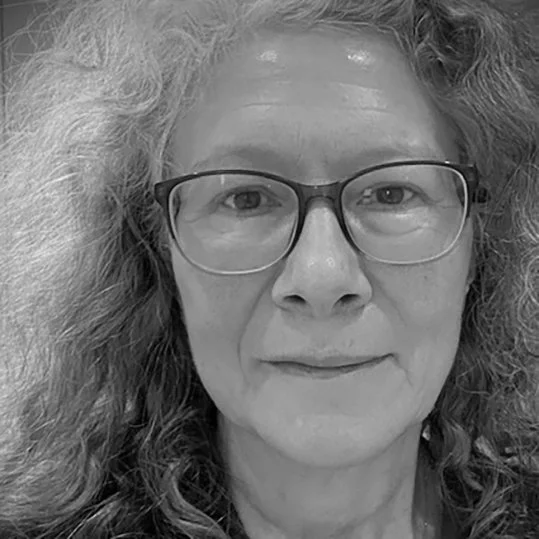#10 Harbor Review
UNTITLED
by Mario Loprete
Editor's Note
In reading the gathering of exquisite poems for issue ten, I found myself searching for answers to an unformed question. Reading for questions is a practice I’ve formed over my 20 years as a public school teacher, but it is also a way of exercising curiosity about the world, the people, objects and ghosts that fill its spaces, dot its skies and line its landscapes. I am always fascinated when questions reveal themselves between seemingly unconnected words, ideas and histories, everything a poem, every poem a way of wondering and moving toward understanding. And what is more important for us in our experience as human beings and as artists, than to pursue wonder? To ask ourselves what we might let go of, what and who we cling to, and why?
Every poem in issue ten asks readers to search and marvel, or as Joanna Solfrian writes–“to [try] to read / what the soot wrote on the sky.” A Dolly Parton concert serves as the unexpected backdrop for a son’s love in "Dolly at the Fox Theater," where the speaker in Dustin Brookshire’s poem chooses to demonstrate undeserved grace and inspires readers to ask when and how we might find the same generosity and courage. While in "Black Girls As The Number Seven," darlene anita scott investigates the serial murders of Black girls but also considers how numbers and patterns lie beneath and between our origins and the world we try to survive in, “indivisible by any other number except itself.” As Kazim Ali writes, one can be both a “marigold listening” even as we face grief and our own cloying to those we have lost–for “[a] ghost is not one who cannot let go but one who we cannot let go of.”
Stefanie Kirby, Ruby Shifrin and Hillary Leftwich write poems that venture into fear of the unknown, ask us to consider what remains when we accept what we have lost or will eventually lose, or as Kirby writes, to consider how “[i]n the end, no one wants my vocal chords except some circling crows.” Will there still be language when the ones we most want to hear us are unable or unwilling to listen? Shifrin writes that there may always be “words to croak / our vulnerabilities like raw-skinned newborns from our place in the nest,” and Leftwich asks us to “split the sky,” where our gaze might “[b]reak bluebirds before promises.” And if we are still determined to cling to whatever we can in this world, so fragile and brilliant and broken, Brett Warren reminds us to “[l]isten how it keeps choosing me / for its home. Listen how careful it is / to never make a single promise.”
Joan Kwon Glass, March 2023
The Stillness of the World Before Baudelaire in Bangla
by Kazim Ali
after Lars Gustafson
To be close enough
To that must-have-been world
Fallible as a saint
Your foot free of its sandal
Rests lightly against mine
To smell your sweat mixed
With the flowers around my neck
Wilting in the heat
Outside in the street
A funeral procession groans on
While in the tent the crowd applauds
A translation: Baudelaire into Bangla
My mouth tastes the air
Your tongue pronounces me
Sounds out the insides
Your sole a portal gently there
My infinity falters
Will this feeling
—skin on skin—
Evaporate into
Young men in orange chanting
Flowers on the body
In virtue and loss
We are marigold listening
Merida
by J W Goossen
Picasso Suggests My Daughters Divide Me
by Stefanie Kirby
His approach involves equity, a firm belief that no part of me outweighs another. One starts with my enviably curved ears, then claims the toenails to add the blue polish she craves. The other proceeds with the eyes, installs them in the garden as pools for afternoon dips in midsummer. The skin functions mostly as a tarp, or sometimes a parachute, which seems to please them both. The twitching muscles around the small bones of the hands, unblemished by noise: they want those, too. Picasso nods solemnly, points toward my lungs. They blacken, turn to flies raised in a single cloud like breath. In the end, no one wants my vocal chords except some circling crows. Someday, I expect my daughters will hear one of the birds shrill with my voice and wonder why I am calling them.
Woman on Sofa
by Kaylee Kim
Homecoming: Sirenita Bobinsana Remix
by Justin Groppuso-Cook
after Artur Mena & James Dewitt Yancey
Pirouetting in pink she comes—Con tus flores
y aromas—staining my J-Dilla tee for the rest of 1993.
In a dream, she is always Cheyenne, the first girl I ever loved—Keep crushing!—as I gift
her my virginity in a stream
of red-breasted robins—Perfuma los
corazones. We live together in a dreamhouse whose blueprints
are afoot. There is a museum in the basement
that suspends the length of the city, & a greenhouse that frames
negative space like a still life: here, my heart
is cracked & scattered to be remediated—Cantaremos icaros.
Our relationship develops in the darkroom
behind my eyelids: the photosynthesis of fauna—Clean it up!—
the flora of my organs. & in the gymnasium, 808s reverberating—Danzaremos muy
juntitos—we share our mother tongues.
The Household
by Uee Jung
Dolly At The Fox Theater (2008)
by Dustin Brookshire
My mother glanced at my shirt,
as we waited, said,
I don’t know why you wore
a Dairy Queen shirt to see Dolly?
I laughed, told her to look again.
My shirt says Dolly Queen.
She looked away like
something else caught her eye.
The tour bus door swung open,
a redhead exited first.
It’s Dolly’s best friend, Judy,
I whispered. Dolly waved
as she walked down the bus steps,
pausing at the bottom to listen
to what we, her fans, were yelling.
Early in the show, Dolly asked
if there were any drag queens
in the audience. My mother fidgeted
in her seat. Someone near
the front row jumped to her feet.
Well, usually the drag queens
come dressed as me, Dolly laughed
before launching into “Jolene.”
When she sang the chorus
for the second time,
she crooned, drag queen, drag queen,
drag queeeeen. Please don’t take my man.
The crowd cheered.
I screamed Yaaaaaas.
My mother looked to her lap.
Seated with an autoharp,
Dolly told us about her coat of many colors,
and love for her mother. She asked
if there were mothers in the audience,
a few yelled,
several hands shot up,
including my mother’s.
Well, I dedicate this song
to all the good mommas out there.
I placed my arm around my mother,
squeezed her tight, leaned my head
against hers, gave her that moment.
Publication credit Let Me Say This: A Dolly Parton Poetry Anthology (Madville Publishing, 2023)
Untitled
by Katie Zychowski
Father
Shakes Mother
by Varun U. Shetty
Citizenship
by Kazim Ali
If it isn’t where you enter but where you exit
Who doesn’t try to grab and devour what one loves
That last piece of the jigsaw puzzle fitting in
A ghost is not one who cannot let go but one who we cannot let go of
Streets wet with asters and deletion
June dissuaded by grey
My citizenship card found
Now I am neither one thing nor another
Misty Waves
by Vian Borchert
Logistics
by Joanna Solfrian
Your name has gone into stone the wells of
your eyes into clouds your body into into
a crematorium While they unloaded did
they chat your soft belly did
they there there is there a switch
or knob to make flame a joke about you taking
a smoke break a shoveler some sort of spray for
the smell how long before you
how long before your body did your ghost stick
around I admit I am trying to read
what the soot wrote on the sky
Reaching
by Cynthia Yatchman
The Agnostic’s Rapture
by Brett Warren
She goes out exactly as she would
have wanted: in the shimmering
warmth of morphine, swaddled
in snowy blankets
during an afternoon nap, two days
before Thanksgiving. No one else
is there. Her mouth had fallen open
the day before, gone slack
and stayed that way, no longer
the mouth that laughed and sang
and told me most of what
I would ever need to know.
After the body lets go, the soul
flows out the mouth and nose
the way a river splits around a rock,
rejoins itself to go on. The soul
swirls between bedrails, passes
through fabric someone wove
to make a privacy curtain long ago.
It leaves the room, goes down the hall,
past laundry bins and towering racks
of picked-over meal trays, gathers
like a cloud to wait for the elevator.
It rides one floor down, floats
into the lobby like an aroma—
in this case (but not always)
a pleasant one, like cookies
or birthday cake.
The woman working the desk
realizes how hungry she is,
so hungry she doesn’t notice
when the glass doors glide open
and the soul shows itself out,
declares itself done with bricks
and steel, with non-slip mats
and parking lots, with freeways
and trees, with roofs on buildings
and vapor trails left by planes.
It hands over its few remaining
attachments, including me.
It leaves me to be anchored,
as she once was, by sleeping cats,
by blankets and loss, by the lack
of light in a room. It leaves me
to my breath, which does not belong
to me. Listen how it keeps choosing me
for its home. Listen how careful it is
to never make a single promise.
Still with Bottles
by Kate Choi
Commuting
by Toti O'Brien
And the surface so thick not just Jesus
but everyone could have walked on water.
Psychedelic colors that veered from teal
to purple to pink.
It would last, said the captain, less than
an hour.
Close your eyes and hang to the rope.
Don’t mind the prickly feeling.
(You should have worn gloves).
Close your eyes.
Don’t mind the smell of sardines.
It’s the cargo.
It will stick to your nostrils for days.
Better than the fumes of petroleum.
Crossing will be smooth, he said
like a freshly pressed shirt.
You’ll arrive before you know.
Your card will be stamped
then you will begin to forget.
Like a morsel of bread
crumbling in a pocket.
Like a bundle of hair
removed from your brush
released into the wind.
Diving into the Wreck II
by Anja Zeilinger
Michael Sends "All the Difficult Hours and Minutes" by Jane Hirshfield
by Ruby Shifrin
Medicine in a fold of paper—sent to calm,
untangle the razzmatazz, chintzy impulses of a scrambled efflorescing
brain, offer a star-map to living with mystery, its why
and how. He advises swallowing, imbibing, percolating in the poem, turning
the gaze to see the plums crusted with salt, possibly accompanied
by a cup of tarry-scented tea offering opportunities to observe bubbles
on the surface and leaves sinking languidly to the bottom of the porcelain cup.
He advises total immersion in the now—to resist reminiscence of summers past
when we danced, juiced up, bare-chested men in shorts,
women in dresses so filmy-sheer, moist and sucky like a deliquesced
blister on our skin, inhaling musky feral sweat, intent upon the rhythm, already fallen
through the harmony to that beat beat beat of heart and feet and we danced indefatigable until
collapse. We knew where we’d be going then for relief. Now he advises we exchange
words instead, as talismans, lodestars, vitamins, breath to
breath, holding them in the struggling forest blindness of withering middle age, words to croak
our vulnerabilities like raw-skinned newborns from our place in the nest, glad
of another wing bone to touch, glad to exchange words for survival,
so we can all rest in this uncertainty—a pause in our sulphurous
complaint, our predicament, our bewilderment. He advises this. Does
the umeboshi plum know its saltiness will spread over my tongue, absorb into interior
rivers, dissolve into seas reflecting the Pleiades and other shimmerings? Sometimes
you carry a poem for years before it becomes vital
and you surrender like the plum to the rice, to the world waiting at hand.
22 Fogs Dreamland mini
by Irina Greciuhina
Adage
by Emma Aylor
Like a hinged box
the throat sometimes opens,
supplies a saying must be copied from elsewhere—
I wouldn’t kick it out of bed
or I can’t tell a story to save my life.
Many must be from my grandfather who kept whole rooms
either with or (most) against their will,
holding court, as he’d call it
without a lick of irony
always with his limes in sixths,
bitter slash of tonic, thick finger of good gin.
He still calls himself the best bad example,
a phrase itself stolen
from my mother,
who said it when she was young
and has heard it repeated since
in entirely the wrong tone.
Think of talk coded like landscape
from a plane, according to its source:
what’s original just fence lines or rivers
between the fields and cities taken;
speech like every light item of clothing I have
which has, over years
of washes, come blue.
Inge West Wing
by Elizabeth Schoonmaker
Mother/Bird
by Abdulkareem Abdulkareem
In a night laden with music,
I paint my father with music in a way
a canvas cannot hold. A woman
sits on a tiled floor breastfeeding
her son, & two other boys sit
across on a straw mat, the older
wielding a cane-like straw
brewing his scream into a whimper.
Emptiness engulfs in-between in
the form of a contrail. The mother
couldn’t see the boys, but the boys
could see their mother—a body,
a mirage. & It all began with the
wind blowing them into minimal
spaces. The light for a mother’s love
lived in the darkest room of my father’s
memories. How not to be an offspring
of a runaway mother? Some mothers grow
wings like birds & make a flight
of their bodies without looking back
at their nest. Pa burned
into an incense in the midst of prayers, &
his brother was his breeze.
He wept—his tears metamorphosed
into a heads-up. Pa found his rib
with a wounded palm & he grabbed.
I still can’t tell what the physics
of his motion was, & how he retrograded.
When I remember my father,
I remember him as the concept of a photograph.
Richelieu 5
by Alexis Choi
Thinker
by Lucy Elkivity
Laundry in the Air, Standing in Front of You
by Victor Hugo Mendevil
The sky is filled with dryer sheets today.
She leaves the clothes at home in the wash
so when they return from their long drive,
their clothes will smell like the lavender,
sunflowers and evergreen trees.
The clouds look like fabric softener today.
Her body is here, her brain still at home
thinking of what he wears, which piece of his
outfit she’ll need to add to the laundry, to cover up
scents of diesel, dirt, and dead skin from the day.
The best fragrances worlds have to offer him are out here
but he doesn’t register them, he barely uses his nose.
His eyes, too, don’t reach the lovely lakes he drives
past. When they park at the lighthouse, he pinches crabs
—lifting rocks to uncover their habitats, taking their
roofs off, moving things around, completely oblivious
that the crabs belong to that home and not another.
Let’s head back.
She hopes he’ll choose to eat out, so she doesn’t
have to cook when they get home. If she’s lucky,
that fresh food and lakeside will brush the
household off her for a night.
Reverence For My Cell
by Jezzelle Kellam
Previously published in Kitchen Table Quarterly
Scarecrow
by Hillary Leftwich
Let’s sell what we own and go. But you’re still hung up on how this will ruin us. I have higher hopes, having waited out life for you. To see you stretch higher than the pines. I reach you on tiptoes. Cover your mouth when you say my name. In another world, I straddle your bike, hugging you to me as you pump for the both of us. But they say, if you leave, don’t ever come back. Instead, I show you how to split the sky. Break bluebirds before promises. Lover for life. My dress a pool beneath me, hand on heart. Tell me what to do. But you have the rapture on your lips. Tarnished tongues speaking for you. And it will take a crucifixion for you to believe me. I watch as you walk, parting the milkweed sea. I’m still standing as if you’ll turn, never mind the crows closing in. I’m just another scarecrow. I’m just another scream wearing your name.
Torso, Interrupted
by Molly McNeely
Black Girls As The Number Seven
by darlene anita scott
Within seventeen months between 1971 and 1972 seven Black girls were abducted, murdered and discarded along freeways around Washington D.C. The “Freeway Phantom” has never been caught.
There are seven directions.
There are seven days in a week.
Seven natural notes make up sound.
There are seven colors in the rainbow.
The body has seven chakras.
Its neck has seven vertebrae.
Its skin consists of seven layers.
There are seven holes in its head.
On the pH scale, from acidic to alkaline
seven is neutral. Seven is not indifferent
or non-partisan as its chemical condition.
Because seven, the number, is divine
in some way in nearly every organized
belief system. Seven represents completion,
an order that is sometimes identified as perfection,
which could reasonably suggest that seven is peerless.
After all, it is indivisible by any other number except itself.
By the time the number of murdered Black girls reaches seven
alarm is algebra—variables fastened to disembodied numbers:
Six are dumped on freeways less than five miles from their homes.
Five are sexually assaulted. Five are strangled. Four are christened
Denise. One is still warm to the touch when found. Then, one is revealed
to be the victim of homicidal cops, and the computation reaffirms seven
as the world’s most favored number, peerless, ever sacred as sacrifice.
Riverbank Mess
by Susanna Herrmann
Abdulkareem Abdulkareem, Frontier III, writes from Nigeria. His works appear and are forthcoming in POETRY, Lolwe, West Trade Review, Nat Brut, SAND Journal, Rough Cut Press, Off Topic, Orion’s Belt, Qwerty Magazine, The Shore Poetry, Brittle Paper, Claw and Blossom & elsewhere. He reads for Frontier Poetry & Agbowó Magazine.
Alexis Choi is attending Seoul International School in Seoul, South Korea. This is her first time submitting her artwork to a larger audience.
Anja Zeilinger is a multimedia artist, currently residing in Bayreuth, Germany.
Brett Warren (she/her) is the author of The Map of Unseen Things (Pine Row Press). She lives in Massachusetts, in a house surrounded by pitch pine and black oak trees—nighttime roosts of wild turkeys, who sometimes use the roof of her writing attic as a runway. www.brettwarrenpoetry.com
Cynthia Yatchman is a Seattle based artist and art instructor. With an M.A. in child development and a B. A. in education, she has a strong interest in art education and teaches art to adults, children, and families in Seattle. As a former ceramicist, she studied with J.T. Abernathy in Ann Arbor, MI; however, after receiving her B.F.A. in painting from the University of Washington, she switched from 3D art to 2D and has remained there ever since. She works primarily on paintings, prints, and collages. Her art is housed in numerous public and private collections and she has been shown nationally in California, Connecticut, New York, Indiana, Michigan, Oregon, and Wyoming. She has exhibited extensively in the Northwest, including shows at Seattle University, Seattle Pacific University, Shoreline Community College, the Tacoma and Seattle Convention Centers, and the Pacific Science Center. She is a member of the Seattle Print Arts Society, Puget Sound Painters, Center of Contemporary Art.
darlene anita scott is the author of the poetry collection Marrow and co-editor of the creative-critical volume Revisiting the Elegy in the Black Lives Matter Era. Her art can be viewed in The Journal, The West Review, and The Journal of Compressed Arts and her photography in Barren Magazine, Auburn Avenue, and Persephone’s Daughters.
Dustin Brookshire is the author of the forthcoming chapbook Never Picked First For Playtime (Harbor Editions, March 2023) and the chapbooks Love Most Of You Too (Harbor Editions, 2021) and To The One Who Raped Me (Sibling Rivalry Press, 2012). He is the co-editor of Let Me Say This: A Dolly Parton Poetry Anthology (Madville Publishing, 2021). Visit Dustin online to find out more about him, the Wild & Precious Life Series, and Limp Wrist: dustinbrookshire.com.
Elizabeth Schoonmaker lives and work in the Town of Plainfield in upstate New York. Elizabeth wrote and illustrated the picture books Square Cat and Square Cat ABC, published by Aladdin Books/ Simon & Schuster. elizabethschoonmaker.blogspot.com
Emma Aylor is the author of Close Red Water (2023), winner of the Barrow Street Book Prize. Her poems have appeared in New England Review, AGNI, Colorado Review, Poetry Daily, the Yale Review Online, and elsewhere. She lives in Lubbock, Texas.
Hillary Leftwich is the author of Ghosts Are Just Strangers Who Know How to Knock (Agape Editions, 2023, republish), Aura (Future Tense Books, 2022 and Blackstone Audio), and Saint Dymphna’s Playbook (PANK Books 2023). She focuses her writing on class struggle, single motherhood, trauma, mental illness, the supernatural, ritual, and the impact of neurological disease.
Jezzelle H R Kellam (b 1999) is a graphite artist from Kent, based in the Northeast of England. Her work has been selected for the ING Discerning Eye exhibition 2021 and the open submission for the Baltic Centre for Contemporary Arts 2021. She has had work in numerous small publications and won the public choice award for Art from Heart: the Divine Feminine virtual exhibition.
Joanna Solfrian’s first book, Visible Heavens, was chosen by Naomi Shihab Nye for the 2009 Wick Poetry Prize. She is also the author of The Mud Room and The Second Perfect Number. Her poems have appeared in The Harvard Review, Boulevard, Margie, The Southern Review, Pleiades, Image, and elsewhere. www.joannasolfrian.com
Justin Groppuso-Cook's poems have appeared or are forthcoming in Best New Poets, Bear Review, Luna Luna Magazine, Crab Creek Review, and EcoTheo Review, among others. He received the 2021 Haunted Waters Press Award for Poetry and was a finalist for Black Warrior Review's 2022 Poetry Contest. For more info: www.sunnimani.com
J W Goossen, born and raised in Vancouver, currently lives in Ladner BC and enjoys carving out time for painting and writing poems and stories. Publishing credits include Rhubarb, Geez, Grain, Canadian Stories, Red Ogre Review and Alchemy.
Kate (Junehyo) Choi is a student attending Asheville School in North Carolina. Her hobbies include listening to music, watching movies and reading books. She is currently preparing her portfolio for university.
Katie Zychowski is a fine art photographer and poet living and working in Grand Rapids, MI, who has exhibited her visual work nationally. Zychowski’s poetry has been published by Poached Hare and The River. After attending Kendall College of Art and Design and graduating with honors in 201, she began her career as an arts advocate within the nonprofit sector and is currently the Communications Assistant at the Grand Rapids Public Library.
Kaylee Kim is a high school student attending Waterford School in Sandy, Utah. She is currently putting together her portfolio for university.
Kazim Ali was born in the United Kingdom and has lived transnationally in the United States, Canada, India, France, and the Middle East. His books encompass multiple genres, including several volumes of poetry, novels, and translations. He is currently a Professor of Literature at the University of California, San Diego. His newest books are a volume of three long poems entitled The Voice of Sheila Chandra and a memoir of his Canadian childhood, Northern Light: Power, Land, and the Memory of Water.
Lucy Elkivity was born in Uruguay and lives in Israel. She works in Tel Aviv and is a member of ArtSpace TLV Gallery. Elkivity has had 12 solo shows, has participated in many group exhibitions in Israel and abroad, and appeared in the first Tel Aviv Biennale of Crafts & Design.
Mario Loprete is a graduate of Accademia of Belle Arti, Catanzaro. Painting is his first love.
Molly McNeely (she/her) is a New York-based poet, photographer, and visual artist. Her work has been featured in online and print publications, such as Dream Noir Magazine, Red Ogre Review, and upcoming in the March 2023 issue of Permafrost. www.mollylauramcneely.com
Ruby Shifrin studied Fine Art and now writes and takes photographs. She lives in the middle of the country and dreams of moving to the coast, East or West.
Stefanie Kirby is a poet residing along Colorado’s Front Range. Her work has been nominated for the Pushcart Prize and Best of the Net, and appears in Passages North, Portland Review, QWERTY, Pidgeonholes, DIALOGIST and elsewhere.
Susanna Herrmann is a designer and visual artist from Indiana. She currently teaches graphic design at Southern Utah University. Her work is based in theories of visual perception and is influenced by space and landscape.
Toti O’Brien is the Italian Accordionist with the Irish Last Name. She is the author of Other Maidens (BlazeVOX, 2020), An Alphabet of Birds (Moonrise, 2020), In Her Terms (Cholla Needles, 2021), and Pages of a Broken Diary (Pski’s Porch, 2022).
Uee Jung is a student attending Seoul International School in Seoul, S. Korea. Her current artwork involves experimenting with color and figures.
Varun U. Shetty is a writer and intensivist. He grew up in Mumbai and lives with his partners in Ohio. His work has appeared or forthcoming in Five South, Reckoning, Hobart and others. He won the 2022 F. Sean Hodge Prize for Poetry in Medicine. To know more visit www.varunushetty.com.
Vian Borchert is a noted artist and an award winning poet. Borchert exhibits in museums and key galleries in NYC, LA, London. Vian is a Notable Alumni from Corcoran George Washington University. Borchert’s art has been in numerous publications. Borchert's art can be acquired through "1stDibs" and "Artsy." www.vianborchert.com
Victor Hugo Mendevil is a mixed-race, disabled poet based in Boston. Originally from Seattle, he holds an MFA in Creative Writing from Hofstra University and currently teaches writing at Northeastern University as an English Graduate Instructor. His work can be found in Pangyrus LitMag, incomprehense, and America’s Best Emerging Poets.














